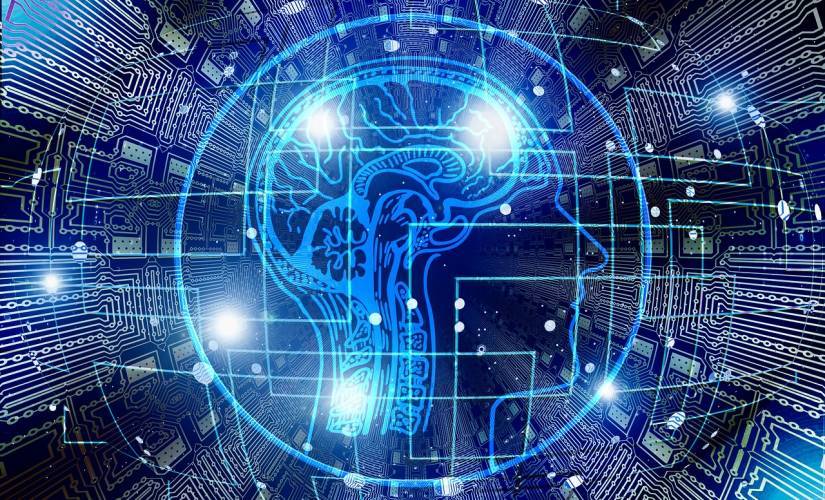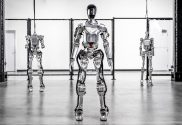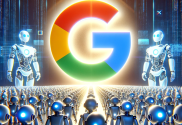Artificial intelligence (AI) technology is here — and it’s long overdue. The technology is rapidly gaining traction and becoming a prominent force within several industries. The technology has come a long way since IBM’s Watson creation trumped Jeopardy! in 2011. Originally, Watson made its home in small and encasement approximately the size of an average bedroom.
Today, the innovations subsists in the cloud, with hundreds of watts in instances running all at once. Consumers and businesses around the world now use Watson technology on their smartphones, desktops and servers.
In the spirit of Watson’s phenomenal evolution, the following entries highlight four ways that AI will revolutionize the marketing industry.
Transformation 1: Machine Learning.
Artificial intelligence technology is becoming increasingly accessible to the average consumer, allowing them to better understand and engage with multimedia content.
Machine learning technology is at the core of this revolution. Vendors such as Amazon Web services (AWS) have developed machine learning tools empowered by artificial intelligence that easily within the grasp of any organization.
Digital advertising agencies, for instance, use the resource optimize the advertising budget across multiple touch points. The vendors even set up mock scenarios so that marketing executives can easily understand how to make the most of the technology
Transformation 2: The Leveraging of Big Data to Identify Equality Gaps.
In the context of artificial intelligence, important to understand how to provide digital access for all when it comes to fairness and inclusion.
As with previous technologies, artificial intelligence is becoming increasingly affordable. Analyst forecasts that the technology to analyze and evaluate large stores of information will soon be within the financial grasp of the average citizen and business owner.
In the meantime, individuals and enterprises must maintain control and security of their data. For instance, data owners can delineate what information they make available to the public and what information they keep private or in-house.
Furthermore, people and organizations can promote inclusion and fairness by supporting open source development across all phases of AI implementation. Additionally, the public must take advantage of free AI training to stay informed about and effectively leverage the technology.
Transformation 3: Improved Efficiency for Both Buyers & Sellers.
The value of any data evaluation rest and how business leaders can use the resulting reports act. Resultantly, savvy marketers will have to learn what information provides the most complete picture of their desired demographic.
Using purchasing and marketing information as well as website analytics, decision-makers can figure out what data exists in its stores that will help them to make better predictions about who is more likely to respond to brand messages. Additionally, marketing leaders would need to use their customer relationship management (CRM) platforms to manage all consumer transactions and engagements.
Using this resource, executives will have everything they need to find previously undiscovered insights and predict the most intentionally profitable courses of action. By making the best use of existing data stores and mining that information about new opportunities, marketing leaders can promote these outcomes effectively.
Transformation 4: Consumer Needs Will Become #1.
Marketers are excited about putting the right products in front of the right people at the right time. With AI, forward-thinking marketers believe that the future holds endless opportunities. According to Bluecore CEO Fayez Mohamood, “We as consumers will be exposed to exactly the information we want, exactly when we want it.”
As people, we humans don’t know what we want until they see. Artificial intelligence may soon serve as the perfect Butler, predicting every imaginable need of consumers. This could include product information that pops up exactly when needed, regardless of the consumer profile or their stage in the buyer journey.
In fact, some analysts forecast the predictive artificial intelligence technology will be so effective that it will soon predict consumer needs and order products automatically. Furthermore, AI butlers could soon order good and services at an optimal price and make sure that comes with important features such as guarantees and warranties.
Artificial intelligence is not only redefining businesses — but it is revealing to us what it means to be human. In fact, mechanical innovations have redefined humanity over the last 6 decades. Throughout these changes, human beings have had to adjust their thinking about what makes them unique.
Over the next decade, analysts foresee a society entrenched in an identity crisis, as artificial intelligence technologies assume many human roles. However, they believe that the utility and productivity of AI technology will almost mute these concerns, as people learn to redefine what it means to be human in a world of endless deadlines, promotions and responsibilities.





